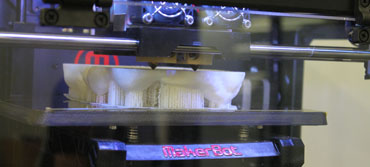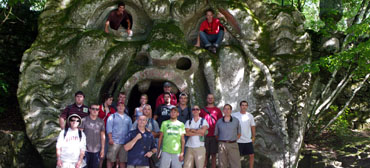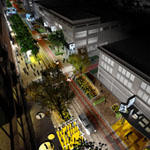The Master of Design Studies comprises multiple areas of concentration that capitalize on emerging and critical issues within the social, economic, environmental and professional realms. Degree concentrations allow students to cultivate new expertise or to extend and deepen their existing knowledge.
Each concentration draws upon the unique expertise and resources of the Fay Jones School of Architecture and Design, the University of Arkansas, and the broader region. The studio-centered program provides immersive experiences, integrating distinctive course offerings across disciplinary boundaries while prompting students to engage complex, problem-solving scenarios. Every concentration is STEM-designated, capturing knowledge and skills that enable students to engage in advanced technologies that address emerging issues in the design disciplines.
Health and Wellness Design provides advanced study exploring the reciprocal relationship between human health and well-being and the natural and built environments. One of the most relevant design specializations in the architectural disciplines, health and well-being are significant issues that span all market segments including workplace, education, single- and multi-family housing, long-term care, and retail and hospitality design.
Integrated Wood Design provides advanced study investigating the design potential of environmentally friendly, sustainable and cost-effective wood products, fabrication methods and constructed environments. Timber construction is experiencing a resurgence in the United States, and this program advances timber- and wood-specific design-focused processes and hands-on learning environments.
Resiliency Design provides advanced study addressing complex design issues in the context of the mid-sized cities and low-density urban areas where most populations live. Paradoxically, the world is becoming less dense as it becomes more urban. Urban designers and planners today are therefore increasingly tasked with devising design solutions for these extraordinarily complex settings.
Retail and Hospitality Design provides advanced study merging critical business strategies with complex economic, environmental and cultural design criteria for dynamic retail and hospitality markets. The paradigm shift from brick-and-mortar to online retail, together with the growth of place-based hospitality design, has recently compelled major changes in retail and hospitality design. At the same time, interactive experiences and integrated technologies are further transforming today’s competitive landscape.
Additional concentrations will soon be available.
Contact our Graduate Coordinator to learn more!









